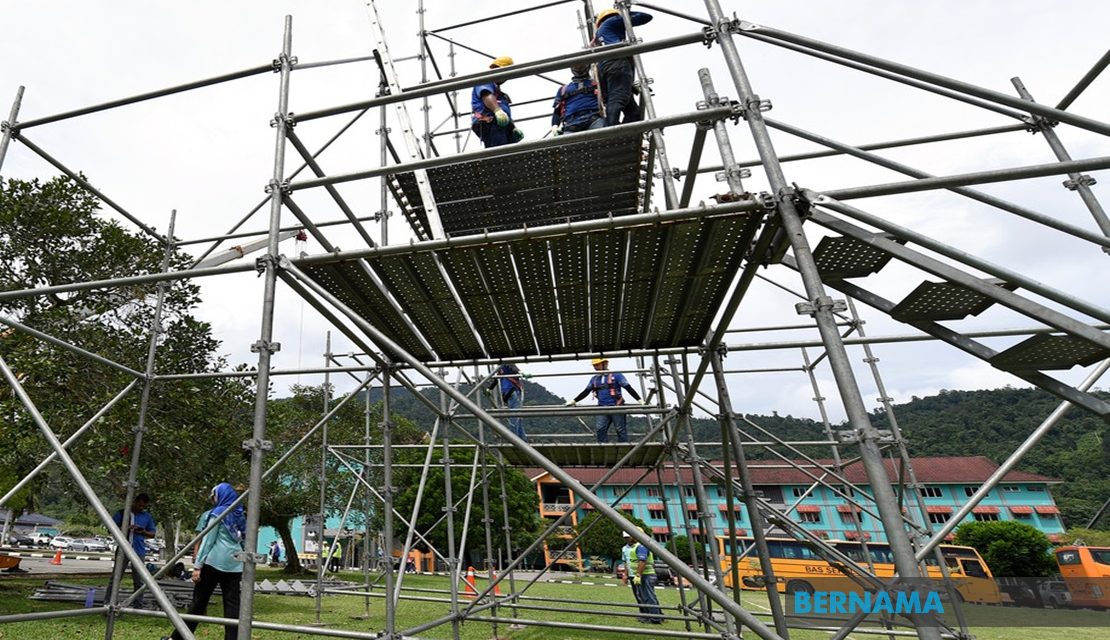Huge potential in new collar jobs for Malaysians
Malaysians should capitalise on new collar job opportunities to earn higher salaries and improve their long-term prospects, said Human Resources Minister M. Kula Segaran. In a Forbes article, writer Scholley Bubenik defined new collar worker as an “individual who develops the technical and soft skills needed to work in technology jobs through non-traditional education paths”. Malaysia is currently focusing on technical and vocational education and training (TVET) programmes to equip its human capital with the necessary technical and vocational skills. It is imperative that Malaysia increases its skilled workforce because it is projected that 60% of jobs created under the 11th Malaysia Plan (2016-2020) will require human capital with technical and vocational skills. Currently, Malaysia’s skilled workforce stands at 28%, whereas advanced nations like Germany’s has reached 51%. Under the Shared Prosperity Vision (SPV) 2030 launched by the government last October, the nation hopes to raise its skilled workforce to 35% in 10 years. (The Sun Daily)
Transport Ministry: ECRL is 15% complete
The shortened East Coast Rail Link (ECRL), which was relaunched last year, has reached a progress rate of 15%. Transport Minister Anthony Loke said the project is expected to be fully completed by mid-2026 and operational by early 2027. “Construction work in Section B (Dungun to Temerloh) started last year and is ongoing. Sections A (Kota Baru to Dungun) and C are still in the exhibition stage, but they will not wait for all new exhibitions to be completed,” he said. Loke said although land acquisition is needed in certain areas, the authorities will try to avoid residential areas, and those affected will be duly compensated. The ECRL would also connect two ports in Port Klang – Westport and Carey Island Port to be built in the future. The new ECRL alignment is now shortened by 40km from 688km to 648km, as it no longer tunnels through the Titiwangsa Main Range that borders Selangor and Pahang. The ECRL project cost was slashed to RM44 billion, RM21.5 billion cheaper than its original cost. (NST Online)
Affordable residential segment to see steady demand this year
The property market is expected to see marginal growth this year with steady demand in the residential, industrial, retail, office and hotel segments. “The focus remains strongly on the affordable residential segment,” says Rahim & Co director of research Sulaiman Akhmady Mohd Saheh, which was reflected in the increased number of affordable units launched in the past 12 to 24 months, and within the RM200,000 to RM300,000 price range. As for the office segment, concerns remain about an incoming wave of new supply. In terms of the retail segment, he sees continuous growth in online shopping, especially among the millennials. In addition, a cashless society is also emerging with e-wallet companies. Sulaiman expects logistics to keep driving the industrial segment. Due to lower incoming supply, there is more demand for industrial products, thus improving overall yields of investment assets, he says. (The Edge)
Malaysia to renew Lynas’ rare earths plant licence: Sources
Malaysia has agreed to renew for another three years Australian firm Lynas Corp Ltd’s licence to operate the only major rare earths processing plant outside of China, according to two sources with knowledge of the matter. The decision was taken at a cabinet meeting chaired by Prime Minister Tun Dr Mahathir Mohamad on Wednesday. The renewal had been in doubt because of a dispute over low-level radioactive waste produced by the plant. In August last year, Malaysia renewed the plant’s operating licence for a shorter-than-usual six months on condition that it finds a permanent site to store waste and moves its cracking and leaching facility outside of Malaysia within four years. Lynas, which sells mainly to Japan, said on Thursday it had not yet received any renewal notification. (The Sun Daily)
Malaysians among most ‘civil’ internet users in latest Microsoft survey
A recent Microsoft survey evaluating civility among internet users worldwide has found Malaysians among the most civil in comparison with 25 other participating countries. The 2020 Digital Civility Index (DCI), which was released in conjunction with Safer Internet Day, saw Malaysia rank fourth place despite a small 1% increase in the DCI score when compared to last year, reflective of a global decline in online civility. According to the scoresheet, Malaysia recorded a better score (59%) than the United States and closely trailed Germany by 1% difference respectively. The United Kingdom topped the list with an index figure of 52%, followed by the Netherlands (56%). South Africa was found to have the worst online civility with an 83% index figure, followed by Peru (81%), Colombia (80%), Russia (79%) and Vietnam (78%). Religion was found to be the topic that drove the most incivility among internet surfers, trailed closely by politics, sexual orientation, race and physical appearance. (Malay Mail)






